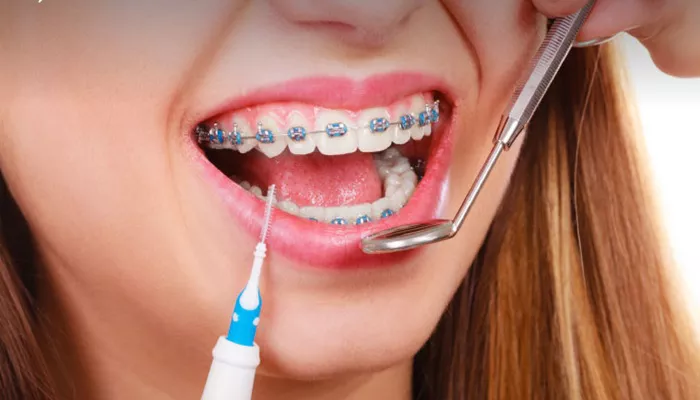Wearing braces is an important step toward achieving a straighter smile and better oral health. However, it also requires some adjustments to your diet. Certain foods can damage braces, prolong treatment, and cause discomfort. Understanding which foods to avoid can help you maintain your braces and ensure a smoother orthodontic experience. In this article, we will discuss the types of foods you should avoid while wearing braces and provide tips for maintaining a healthy diet during your treatment.
Understanding Braces
What Are Braces?
Braces are dental devices used to correct misaligned teeth and jaws. They consist of brackets, wires, and bands that work together to gradually move teeth into the desired position. While braces are effective, they require careful attention to oral hygiene and dietary choices.
Why Food Choices Matter
Certain foods can harm braces in various ways. They can:
Break Brackets: Some hard foods can break or dislodge brackets.
Damage Wires: Sticky or chewy foods can bend or break wires.
Cause Cavities: Sugary foods can lead to plaque buildup, increasing the risk of cavities.
Cause Discomfort: Some foods can irritate the gums and mouth, especially after adjustments.
Foods to Avoid While Wearing Braces
1. Hard Foods
Hard foods can easily break or dislodge brackets. Avoid the following:
Nuts: Almonds, walnuts, and other hard nuts can damage braces.
Hard Candy: Sucking on hard candies can lead to broken brackets.
Ice: Chewing on ice cubes is a common cause of dental damage.
Popcorn: Unpopped kernels can break braces, and the hulls can get stuck in them.
2. Sticky Foods
Sticky foods can cling to braces and are difficult to clean off. Avoid these items:
Chewy Candy: Taffy, caramel, and gummy bears can pull on brackets and wires.
Dried Fruits: Raisins and other dried fruits can stick to teeth and braces.
Toffee: This sticky treat can easily damage orthodontic appliances.
3. Sugary Foods
Sugary foods can lead to plaque buildup and cavities, especially when wearing braces. Limit or avoid:
Soda: Soft drinks are high in sugar and can lead to tooth decay.
Candy: Hard and soft candies can contribute to cavities.
Sweetened Beverages: Fruit juices and sweetened teas can also be high in sugar.
4. Acidic Foods
Acidic foods can erode tooth enamel, especially when combined with braces. Be cautious with:
Citrus Fruits: Oranges, grapefruits, and lemons can be too acidic.
Tomato Products: Ketchup and tomato sauce can be acidic and harmful to enamel.
Vinegar-Based Foods: Pickles and vinegar dressings can also be damaging.
5. Tough Meats
Tough meats can be hard to chew and may damage braces. Avoid:
Steak: Tough cuts of meat can be difficult to bite into.
Ribs: Chewing on bones or tough meat can put pressure on braces.
6. Whole Fruits and Vegetables
While fruits and vegetables are essential for a healthy diet, some require special preparation:
Whole Apples: Instead of biting into whole apples, slice them into smaller pieces.
Carrots: Raw carrots should be cut into smaller, manageable pieces.
Corn on the Cob: Instead of biting directly into corn, cut the kernels off.
Tips for Eating with Braces
1. Cut Food into Smaller Pieces
Cutting food into smaller, manageable pieces can help prevent damage to your braces. This is especially important for hard and tough foods.
2. Choose Soft Foods
Incorporate soft foods into your diet to make eating more comfortable. Some good options include:
Yogurt: A great source of calcium and protein.
Mashed Potatoes: Soft and easy to eat.
Smoothies: A delicious way to get fruits and vegetables.
Pasta: Soft pasta dishes are easy to chew.
3. Chew Carefully
Be mindful when chewing, especially after getting braces or after adjustments. Take your time and avoid using your front teeth to bite into hard foods.
4. Maintain Good Oral Hygiene
Good oral hygiene is crucial when wearing braces. After eating, brush your teeth and braces carefully to remove food particles and plaque. Use an orthodontic toothbrush and floss to keep your mouth healthy.
5. Stay Hydrated
Drink plenty of water to help wash away food particles and keep your mouth hydrated. Avoid sugary drinks that can lead to cavities.
What to Do If You Accidentally Damage Your Braces
1. Stay Calm
If you accidentally break a bracket or bend a wire, don’t panic. It’s important to stay calm and assess the situation.
2. Contact Your Orthodontist
Call your orthodontist’s office as soon as possible. They can provide guidance on what to do next and schedule an appointment if necessary.
3. Use Orthodontic Wax
If a broken bracket or wire is causing discomfort, you can use orthodontic wax to cover the sharp edges until you can see your orthodontist.
Conclusion
Wearing braces is a significant commitment that requires careful attention to your diet. By avoiding hard, sticky, sugary, acidic, and tough foods, you can help ensure the success of your orthodontic treatment. Instead, focus on soft foods and maintain good oral hygiene to keep your teeth and braces healthy.
Remember that your orthodontist is there to help you navigate this journey. If you have any questions or concerns about your diet or orthodontic care, don’t hesitate to reach out to them. With the right approach, you can enjoy your favorite foods while keeping your braces intact and your smile on track.
Related topics:

